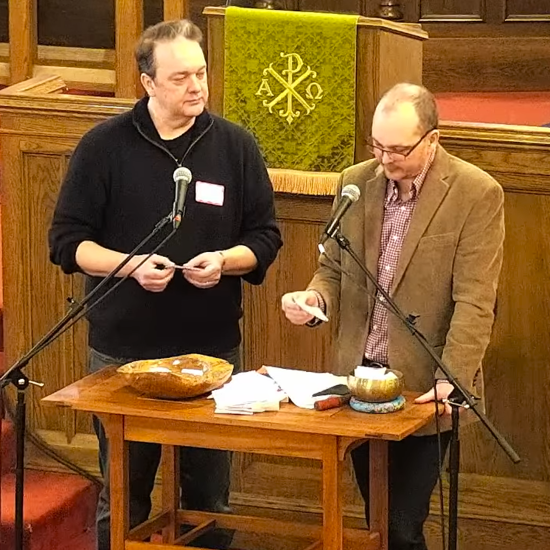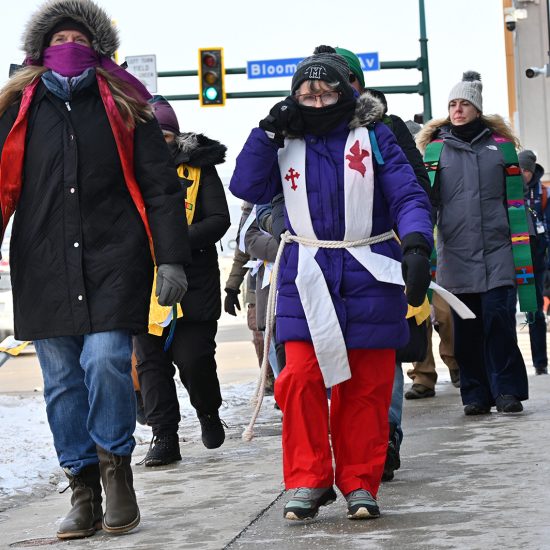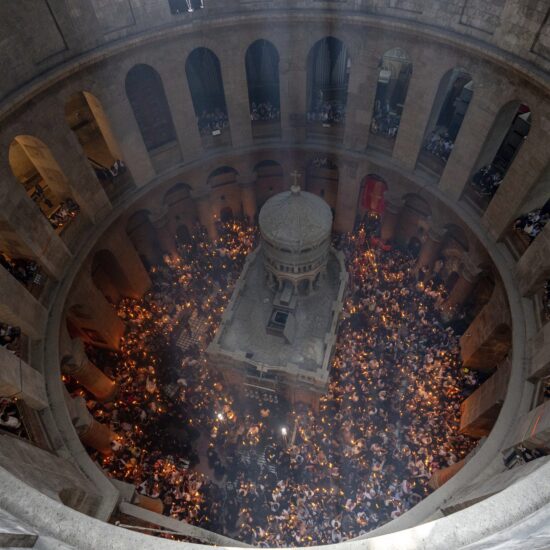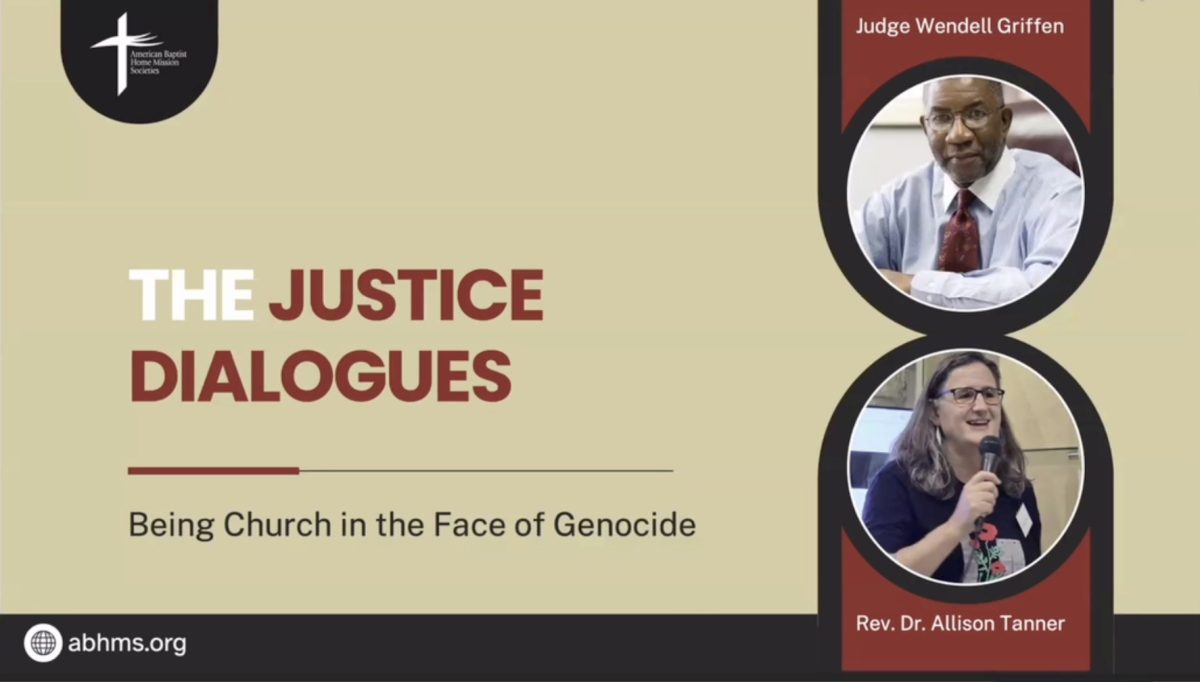
On Wednesday (July 30), the American Baptist Home Mission Societies held a virtual session in their Justice Dialogues series titled “Being Church in the Face of Genocide.” The Justice Dialogues program, launched in 2020, is broadly meant to help Christian citizens realize a more just society — and this specific gathering focused on exploring how the church can courageously respond to the ongoing mass suffering in Gaza and the West Bank.
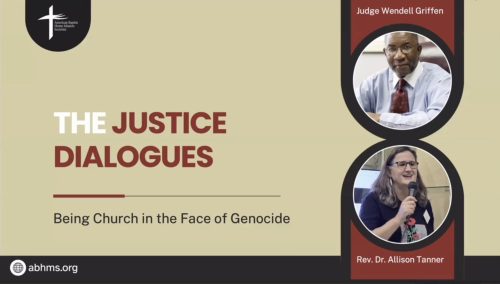
screengrab
The event provided historical and theological context for the ongoing crisis, where over 60,000 Palestinians have been killed in just 21 months, and featured two guest speakers who are deeply engaged in justice work. Judge Wendell Griffen, who recently retired from the Arkansas state court bench, is the pastor of New Millennium Church in Little Rock, Arkansas, and co-chair of the Samuel DeWitt Proctor Conference. Rev. Dr. Allison Tanner serves as the pastor of public witness at Lakeshore Avenue Baptist Church in Oakland, California, and is the national organizer of the Apartheid-Free Communities initiative.
Griffen began his talk by reading a powerful prayer that his church concludes each Sunday worship service with. An excerpt of it reads,
Hear our prayers for the infants of Palestine.
Hear our prayers for their parents.
Hear our prayer for the playmates children in Gaza will never know.
Hear our prayer.
See the silent and sobbing tears we weep for the futures they will never experience.
Smiles. Laughter. Giggles.
All lost.
Bombed.
Incinerated.
Targeted.
Massacred.
The slaughtered children, parents, and elders cannot plead for help.
The nations of the world will not protect them.
Religious leaders across the world do not cry out for them.
He then proceeded to ask a series of pointed questions: “What are you praying for about this? What are you doing about this? Why aren’t you praying about this? Why aren’t you preaching about this? Why aren’t you protesting this? And what kind of followers of Jesus are we if we won’t, if we say we can’t, or if we say we shouldn’t?”
Griffen shared with those gathered an article he co-wrote for Word&Way last year titled “Hateful Faith and Violence Against Palestinians in the ‘Holy Land.’”
“I put ‘Holy Land’ in quote marks because there’s nothing holy about the hell that the Palestinians are going through,” he lamented. “I’ve been to the region. I have seen it firsthand. It is not holy, it’s hellish. And I will simply say that I am 72 years old. I’m from the last generation of Black people who were born in Jim Crow. I had a PSD moment when I landed in Tel Aviv because I felt like I felt as a child.”
Tanner began her remarks by noting that when confronted with evil, people of God are called to do something about it.
“In the face of ongoing genocide, including intentional starvation, indiscriminate killing, targeting of community leaders, including teachers, doctors, mayors, journalists, the destruction of infrastructure, including roads, schools, churches, hospitals, power grids, bakeries, in the face of ethnic cleansing and the root causes of this genocide — which are the settler colonization, apartheid, and military occupation of the Israeli regime — the church is called to act,” she preached.
Tanner pointed to the fact that in 2009, Palestinian Christians put out an epistle to the international church called Kairos Palestine. This document was modeled after Kairos South Africa, and it also called on the prophetic nature of Martin Luther King’s “Letter from Birmingham Jail.”
“Palestinian Christians are no more worthy of being listened to than any and all Palestinians. And yet, because we share a common faith, because they have reached out specifically to the international church, we have an obligation to hear what they’re saying and to respond,” she added. “Basically, they’re giving us three very clear ways in which we can be the church, we can help them get their freedom back. The first, very simply, speak truth, name the evils of the situation that they are enduring. Two, seek justice, for Palestinians are deserving of freedom and human rights. And three, insist on love for it is from a logic of love that we must resist evil whenever it manifests.”
There are three practical recommendations Tanner had for taking action: supporting new Block the Bombs legislation that demands that the U.S. Congress stop funding and sending weapons to Israel, joining the American Friends Service Committee Action Hour that takes place every Friday, and encouraging your congregation to sign the Apartheid-Free Pledge.
The next Justice Dialogues session will occur on September 3 and feature Bishop Dwayne Royster, executive director of Faith in Action, and center on the church’s role in responding to rising Christian Nationalism and reclaiming democracy.




